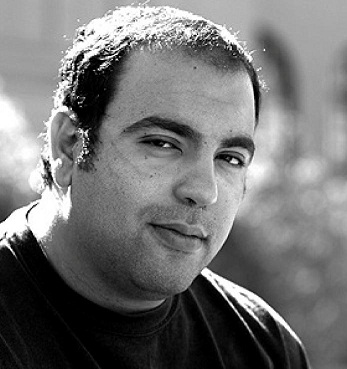CAIRO: Under the slogan “Today’s students in Egypt. Tomorrow’s nurses of the world,” the Maghrabi Mansour International Nursing Faculty (MMINF) at the British University in Cairo (BUE) set out to remove the stigma attached with being a nurse.
Its program is leading the way and giving Egypt a new generation of nurses who are determined to change society’s perception of the profession.
“People tend to look at nurses as if they are of a lower education standard, they [falsely believe] that nurses don’t need to be educated and as someone you give orders to and they will follow,” explained the Dean of MMINF, Cheherezade Ghazi.
Ghazi pointed out that people of lower social and educational classes surprisingly tend to understand the importance of the role of the nurse, as opposed to the better educated who do not.
“We want the students here to go on and be ambassadors, to be the ones to explain the role of the nurse to the public. They are learning to be proactive, to be leaders so that they become change agents, our main objective is that they change the environment not just work,” noted Ghazi.
It was Egypt’ First Lady Suzanne Mubarak who had suggested that BUE open a faculty of nursing during her visit of the premises for the university’s inauguration in 2006. Work on the program started then and two years later, the university celebrated the launch of its nursing faculty.
There are approximately 18 faculties of nursing in Egypt with an additional few at private universities, however MMINF is the only private higher-education nursing faculty to offer dual bachelor’s degrees upon graduation from both the BUE in Egypt and Queen Margaret University in Scotland, which is in line with their mission and further aids their graduates to truly become nurses of the world.
Professors and students at both universities work together continuously and have full access to the facilities there. Students enrolled at MMINF are automatically registered at Queen Margaret University in Scotland, they even have two IDs for both universities and at graduation receive two certificates.
There is also a professor exchange program between both universities and throughout the year, there are visiting professors who conduct seminars and workshops.
MMINF houses a dedicated sate-of-the-art facility that accommodates a maximum of 600 students at once. The facilities include multiple computer labs, a video-conferencing center, clinical labs and a simulated hospital ward.
Starting from year one in this five-year program, students begin their hands-on hospital training in private hospitals across Cairo in order to get the most of real-life experience with patients and hospital settings.
“Students have to have the hands-on clinical training in order to implement what they have learned,” said Ghazi.
Students receive training at hospitals with which the faculty has a partnership agreement. This includes leading hospitals such as Al Salam International Hospital and Arab Contractors Hospital. Future plans include the Cancer Institute.
The fifth year of the program is an internship at either Scotland or Egypt and upon graduation students receive job offers through the university’s Job Placement Guarantee.
“We are keen on teaching the students key concepts such as critical thinking and communication skills so that they would go on and not only practice nursing but to change the behavior of people [towards nursing],” explained Assistant Professor Ghada El Guindy, who is one of MMINF’s founding faculty members.
Ghazi explained that the clinical training when students had to go out and face the real world was very positive as MMINF’s students immediately stood out.
Furthermore, as part of being involved in the community and to further work on changing the misconception about nurses, MMINF students cooperate with the Egyptian Red Crescent on various social activities. Future plans include also holding conferences, lectures and other forums in order to inform people about the role of the nurse.
The program’s students
As BUE is a private university, its students tend to come from a higher caliber of society, although it does offer scholarships which range from 50 percent up to a 100 percent full scholarships, so working with people of different socioeconomic classes with a misunderstood profession can prove challenging.
“It may be challenging at first but then through your work people will understand that the nurse has a very important role as you make them see how the nurse is their contact person who knows the case thoroughly,” explained junior Amgad Hussein, who was facing an additional challenge of being a male nurse.
However, he remained positive and said he looks forward to the clinical training eagerly.
Students say they preferred enrolling in the nursing faculty as opposed to medical schools, which is the more attractive option.
“I chose nursing because I’m very interested in humanitarian work as it can be the only profession in the medical field that combines the humanitarian side, the medical side and the dynamic, active nature,” explained junior Yasmine Yehia.
One of Yehia’s goals is to work for an international organization, pointing out that she would specifically love working in Africa. However, after working with disabled children and refugees here in Egypt, she feels the need to work here first before going to work in another country.
“People come from all over the world to work here so I can’t go on to work in another country when my country is in need,” she said.


